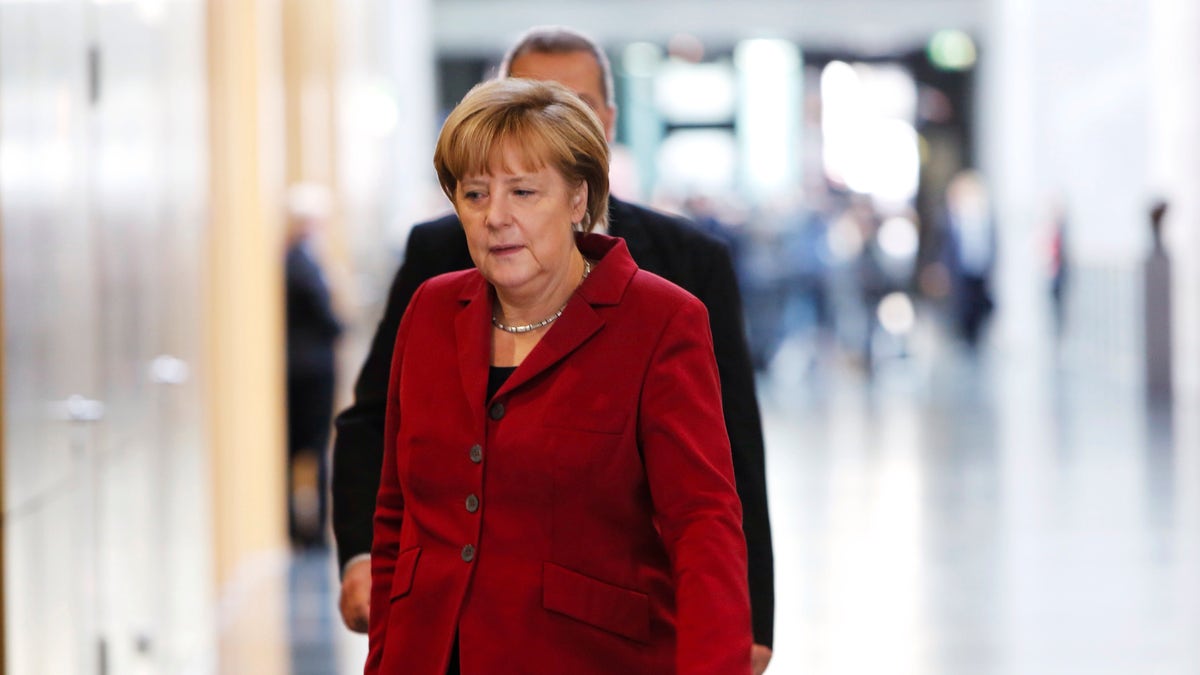
German Chancellor and chairwoman of the Christian Democrats, CDU, Angela Merkel arrives for a meeting with the Christian parties delegation prior to exploratory talks on a coalition with the Social Democratic Party, SPD, in Berlin, Germany, Thursday, Oct. 17, 2013. Following the national elections on Sept. 22, 2013, Merkel is still in negotiations for a coalition partner for her third term. (AP Photo/Markus Schreiber) (The Associated Press)
FRANKFURT, Germany – While politicians in the United States argue about spending cuts, deficits and the debt ceiling, Germany faces a different discussion: What to do with a looming budget surplus.
The country's strong economy means it will take in more in tax revenue than it will spend next year for a third straight year, a group of top economic institutes said in a twice-annual report Thursday.
The report urged the government to put the surplus to good use and suggested investing in education and scientific research. The government could also give taxpayers a break by eliminating so-called bracket creep, the institutes said. Bracket creep is when inflation pushes taxpayers into higher tax brackets.
The German government will run a surplus of 0.1 percent of economic output this year and 0.3 percent next year — or 7.7 billion euros ($10.5 billion) after taking in 1.257 trillion euros and spending 1.249 trillion euros. Germany also had a small surplus in 2012.
Germany will continue to run surpluses to 2018, if tax and spending practices remain the same, the report said, reaching 1.5 percent of GDP. Provisions of Germany's constitution will require, however, that some of that money be used to start paying down debt.
The economists forecast that debt as a percentage of annual economic output would drop from 81.2 percent last year to 61 percent by 2018. That is close to the 60 percent debt ceiling required on paper by the European Union for the 17 nations that use euro currency, although the limit has been widely violated.
The report trimmed the German growth forecast for next year, to 1.8 percent from 1.9 percent in their last estimate in April. But they said the economy nevertheless remains strong, supported by increasing employment and a lessening of the debt crisis in other countries using the euro.
Germany took steps in 2003 to significantly cut the cost of labor and employee benefits to businesses. Over the succeeding years, the country has seen strong economic performance exporting cars and machinery to the United States and to developing markets such as China.
German unemployment is Iow at 5.2 percent and the business climate has improved due to the easing of market tensions over debt levels in other euro countries such as Spain, Italy, Greece, Portugal and Ireland.
